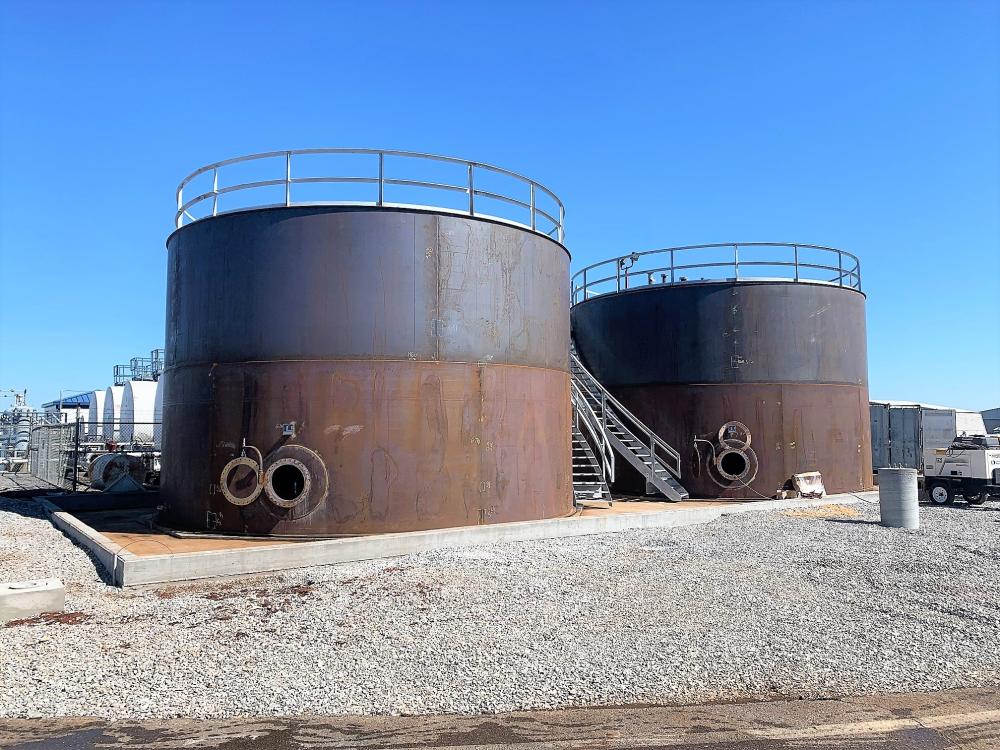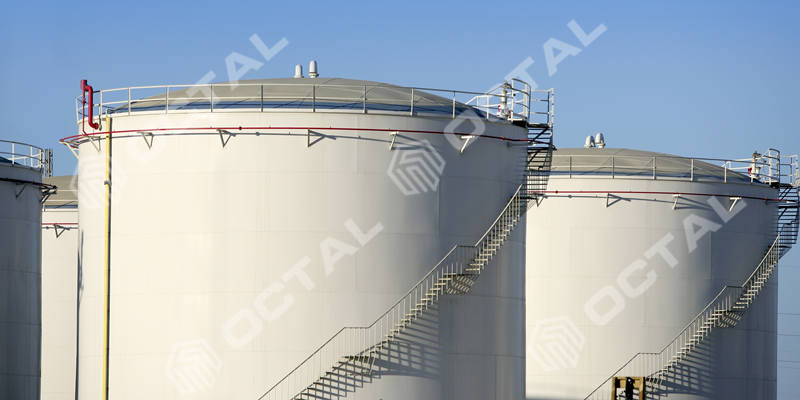How API 650 Welding Inspection Drives Operational Excellence in Engineering
Wiki Article
The Benefits of Welding Inspection for Improved Security and Performance
Welding inspections are essential for ensuring that frameworks satisfy rigorous market criteria. They play a vital function in determining defects early, thus improving security and reducing the danger of disastrous failures. In addition, these assessments can cause considerable cost savings by avoiding costly fixings and downtime. As companies aim for better efficiency and reliability, the relevance of a robust evaluation procedure can not be overemphasized. What other advantages might emerge from a dedication to extensive welding inspections?Guaranteeing Compliance With Market Standards
Ensuring compliance with market criteria is important for maintaining quality and safety and security in welding jobs. Sticking to recognized methods not only shields workers however also improves the durability and efficiency of the end product. Welding assessments conducted at different phases of the process aid identify any type of deviations from these requirements, enabling prompt corrective actions. This positive strategy reduces the danger of failings that could result from low-grade workmanship.Furthermore, compliance with market requirements cultivates count on among stakeholders, consisting of clients, regulatory bodies, and the labor force. It symbolizes a commitment to excellence and accountable methods, which can lead to enhanced service possibilities and an one-upmanship on the market - API 650 Welding Inspection. Routine inspections also guarantee that materials and techniques made use of align with the most current technological developments and security guidelines. Ultimately, adherence to sector criteria is not just a regulative need yet a keystone of quality control in welding projects
Enhancing Security Via Early Discovery of Issues
While the key goal of welding evaluations commonly fixates compliance, they play an essential duty in boosting security by enabling the very early discovery of problems. Identifying concerns such as incomplete fusion, splits, or porosity during inspections can substantially alleviate the risk of tragic failings. Early detection enables timely treatments, making sure that faulty welds do not endanger structural honesty.Furthermore, systematic examinations foster a society of safety within companies by highlighting the relevance of quality assurance. This proactive technique not only secures personnel however also safeguards the surrounding atmosphere. Regular assessments can reveal patterns in defect incident, allowing for changes in welding techniques and training programs to attend to underlying issues.
Subsequently, welding inspections act as a crucial secure, reinforcing total safety and efficiency by identifying problems prior to they rise into major threats. This dedication to quality directly contributes to the durability and dependability of bonded frameworks.
Lowering Prices by Preventing Failures
By implementing extensive welding assessments, companies can successfully lower prices related to failings and revamp. The aggressive recognition of issues throughout the welding procedure decreases the threat of tragic failings that can cause pricey repair services or substitutes. Early discovery permits prompt interventions, which avoids the acceleration of minor issues into significant troubles that stress budget plans and resources. Additionally, by ensuring that welds fulfill defined requirements, organizations can avoid hold-ups in task timelines triggered by the requirement for substantial rework or extra evaluations later while doing so. This not only conserves cash but also boosts operational efficiency. A reputation for high quality workmanship can lead to raised customer contentment and repeat company, further contributing to financial stability. On the whole, investing in welding inspections is a calculated approach that promotes cost savings while guarding the stability of bonded structures.Improving Efficiency and Long Life of Structures


Welding assessments play a crucial role in improving the performance and durability of frameworks, as they validate that welds are executed to the greatest requirements. By recognizing issues early in the welding procedure, inspections avoid weaknesses that might jeopardize architectural stability. This positive strategy guarantees that the products made use of fulfill required specs, consequently maximizing their load-bearing ability and strength.
Consistent surveillance of welding methods adds to the overall high quality of building tasks. When welds are validated for conformity with market requirements, the potential for exhaustion and failing gradually is considerably decreased. Frameworks that are developed with correctly inspected welds are most likely to experience fewer maintenance problems and enhanced sturdiness.
Eventually, rigorous welding assessments not only strengthen the instant performance of a structure yet likewise expand its operational life-span, offering lasting value to both end-users and building contractors alike.
Promoting a Society of High Quality and Integrity
A commitment to high quality and reliability in welding methods greatly adds to the click this link total success of building tasks. When organizations focus on these worths, they foster a society that urges precise interest to information and adherence to industry criteria. This culture not only improves the ability degree of welders but also promotes responsibility and synergy amongst all stakeholders involved in the job.
Routine welding assessments offer as a keystone in this social shift, strengthening the significance of consistent performance and safety measures (API 650 Welding Inspection). By implementing strenuous examination methods, business can determine prospective flaws early, mitigating risks and staying clear of pricey rework. A focus on top quality and dependability instills self-confidence among partners and click for more info clients, leading to more powerful connections and enhanced online reputations.
Connections Ultimately, cultivating a society of quality and integrity in welding methods not just raises project results but additionally ensures lasting sustainability and success in the building industry.
Often Asked Questions
What Credentials Should a Welding Inspector Have?
A welding examiner should possess pertinent certifications, such as AWS CWI or CSWIP. Furthermore, they need to have experience in metallurgy, welding processes, and assessment strategies, along with strong logical abilities and attention to detail for efficient analyses.

Exactly How Commonly Should Welding Inspections Be Performed?
Welding examinations need to be performed regularly, ideally after each significant stage of the welding procedure. In addition, routine examinations need to take place based upon job demands, service conditions, and regulatory criteria to assure recurring top quality and security.What Equipment Are Utilized During Welding Inspections?
Welding inspections utilize numerous devices, including ultrasonic testers, magnetic bit a knockout post testers, visual examination devices, and radiographic devices. Each device serves a specific objective, making sure weld quality and structural honesty through thorough examination and evaluation.Can Welding Inspections Be Carried Out From Another Location?
Welding assessments can indeed be executed remotely making use of advanced modern technologies such as drones and specialized electronic cameras. These devices allow inspectors to analyze welding top quality and integrity from a range, enhancing efficiency and safety and security in numerous atmospheres.What Are the Common Kinds of Welding Problems?
Common sorts of welding issues include porosity, splits, incomplete blend, damaging, and slag inclusion. These flaws can jeopardize the stability and strength of welds, leading to possible failures in structural applications otherwise dealt with properly.Welding assessments are important for making certain that structures satisfy rigorous industry requirements. Welding inspections carried out at numerous stages of the process assistance recognize any variances from these criteria, enabling timely restorative activities. Welding inspections play a necessary duty in enhancing the performance and durability of frameworks, as they validate that welds are implemented to the highest requirements. Welding assessments need to be performed frequently, ideally after each considerable stage of the welding procedure. API 650 Welding Inspection. Welding inspections use different devices, consisting of ultrasonic testers, magnetic fragment testers, aesthetic examination devices, and radiographic tools
Report this wiki page